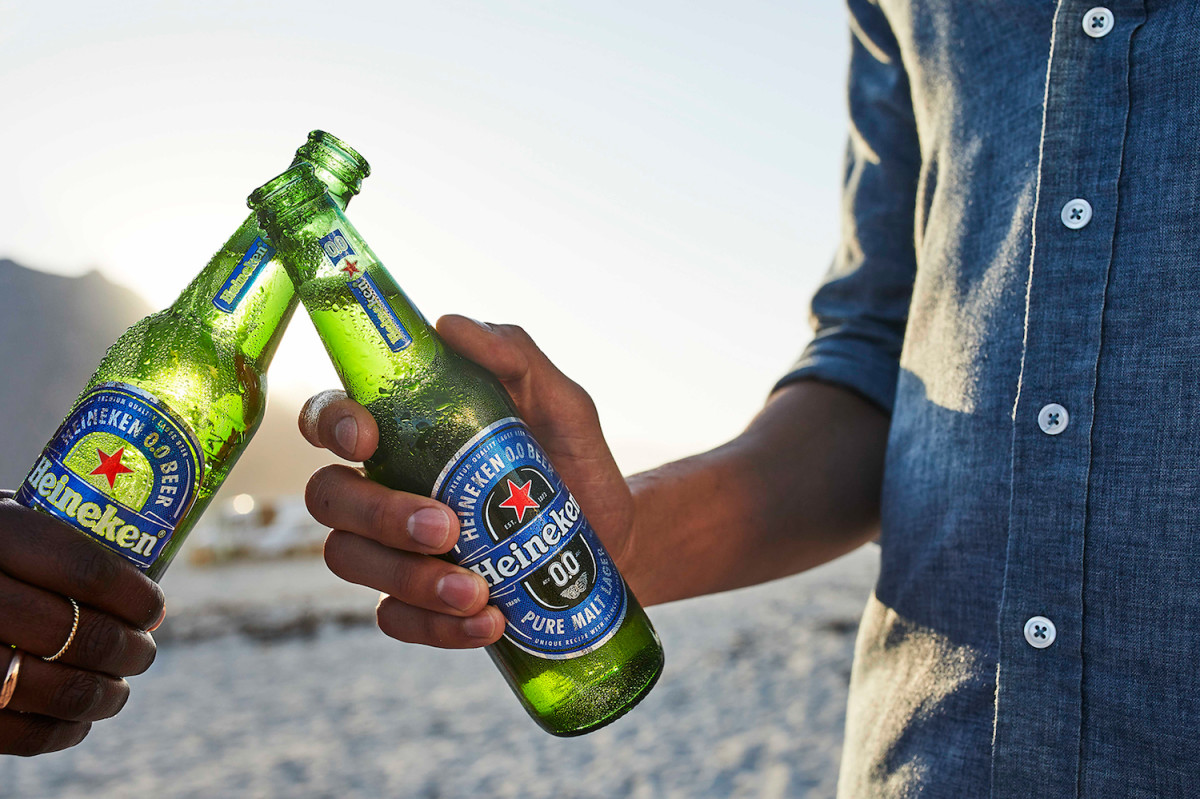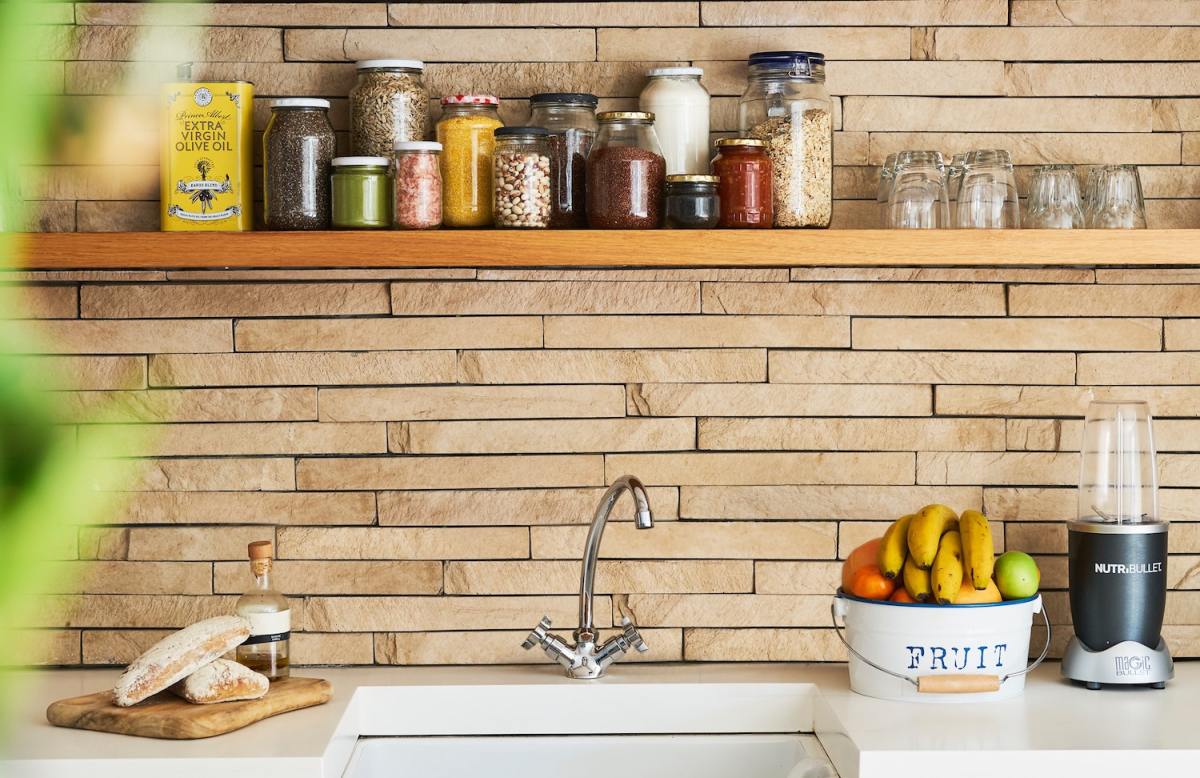
Sponsored Content
While ringing in the New Year may involve less confetti and more contemplation this year, the hope and promise of a fresh start remains the same. But all the best intentions in the world won’t make sticking to resolutions any easier this year. In fact, just seven percent of Americans reported sticking to all of their resolutions (while 19 percent managed to hold onto some but not all of their plans for the new year), according to a 2019 poll by YouGov.
According to many experts, the key to making big changes is altering everyday behaviors. So instead of shooting for the stars and then losing motivation early, check out these six daily habits you can change right now and stick to for weeks, months, and years to come.
1. Ditch the Annoying Phone Alarm and Wake up to Your Favorite Tunes Instead

How you wake up sets the tone for your day and if it’s with a shrill alarm sound from your phone, well, it doesn’t bode well. A study from Australia found that waking up to a melodic alarm—as in actual music you’d choose to listen to any other time of day—led to a better transition from sleep to wakefulness. Respondents who woke to musical alarms noted less grogginess than those who used traditional (i.e. annoying) alarm noises. Before bed tonight, tell your smart speaker to play your current favorite song at your desired wake-up time, and you’re guaranteed at least one thing to look forward to.
2. Reward a Hard Workout With a Post-Workout Alcohol-Free Beer

The debate over whether or not to enjoy a post-workout beer has gone back-and-forth for years. Beer contains vitamins, electrolytes, and carbs our bodies sometimes crave after a long run, gym session or swim in the pool. With Heineken® 0.0, now you can crush a post-workout beer no matter the time or day. Heineken® 0.0 has all the flavor of a classic Heineken®, but without the alcohol. A flavorful reward is a smart way to keep your fitness goals going, and with Heineken® 0.0, now you can enjoy a sweat-earned beer whenever and wherever you work out.
3. Embrace the Cold Shower, Seriously

Getting out of a warm bed in the depths of winter is tough. Getting into a frigid shower is even harder, but it’s worth it. Cold showers are associated with a whole range of mental and physical health benefits. While athletes will immediately understand how cold water can help sore muscles recover, the mental benefits are a bit more nuanced. When you step into a cold shower you get a rush of adrenaline—an unrivaled wake-up call—and both norepinephrine and dopamine for a reduction in stress and a boost in attentiveness.
If going full ice shower is too tough, start by easing into it. Here’s how: After a few minutes of your normal hot shower, switch to cold for a minute or two, then go back to hot. Alternating between hot and cold dilates and contracts your blood vessels for better circulation, so you’ll enjoy benefits even as you ease into it.
4. Get Better Sleep by Limiting Screen Time Before Bed

It’s difficult to overstate the importance of getting quality sleep every night. Research shows that it influences everything from sexual health and stress levels to our ability to focus. Think of sleep as the foundation for every other area of improvement in your life. While many factors influence the quality of sleep, eliminating screen time right before bed is the simplest path towards a good night’s rest.
For at least 30 minutes before hitting the hay, stash your device (ideally in another room) and stop streaming the latest binge-worthy series, too. Looking for some entertainment while winding down? Go old school with an actual paper book (e-readers are okay too, as long as they’re not backlit).
5. Intermittent Fasting Might Be Worthy of the Hype

When it comes to losing weight—specifically fat—intermittent fasting could be worth looking into. The concept of intermittent fasting involves restricting eating times, either by noshing only during certain hours each day or by having one or two days of fasting per week—no calorie counting or juice cleanses required. A 2019 study found that intermittent fasting could have benefits beyond body composition, including lower stress, reduced inflammation, and improvements in memory.
Looking to see if it works for you? Try the 16:8 method, which involves fasting for 16 hours, leaving eight daytime hours open to eating. The most common way to stick to this schedule is to start eating for the day at noon, then finish dinner by 8 p.m. for a full sixteen hours of fasting before noon the following day. (You can still have your morning coffee—just make it black.)
6. Make Time for a Moment of Mindful Meditation

If meditation isn’t part of your daily routine, now is the time to start. Like getting a good night’s sleep, the health benefits of meditation extend into nearly every aspect of life, from reducing stress and improving focus to even increasing your threshold for pain (hey, it could come in handy). Like any new habit, it’s best to start small and level up as you go. Meditation experts suggest as little as 10 minutes per day is enough to start experiencing benefits from the practice. Try it after your morning cold shower for the full 2021 experience.
from Men's Journal https://ift.tt/3oeEPu7
No comments:
Post a Comment